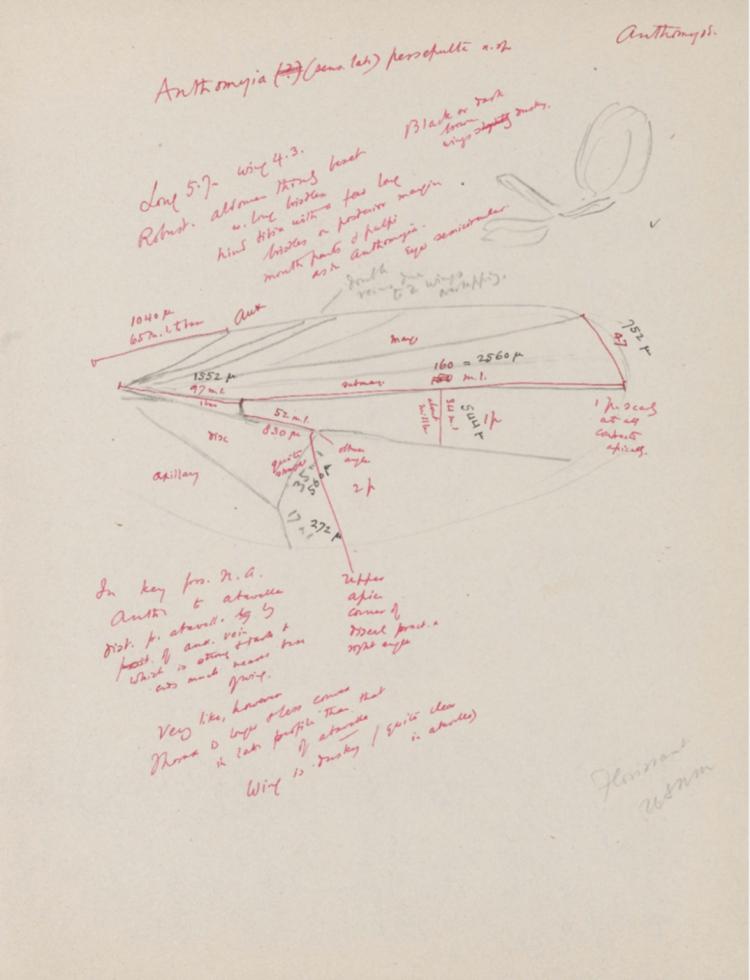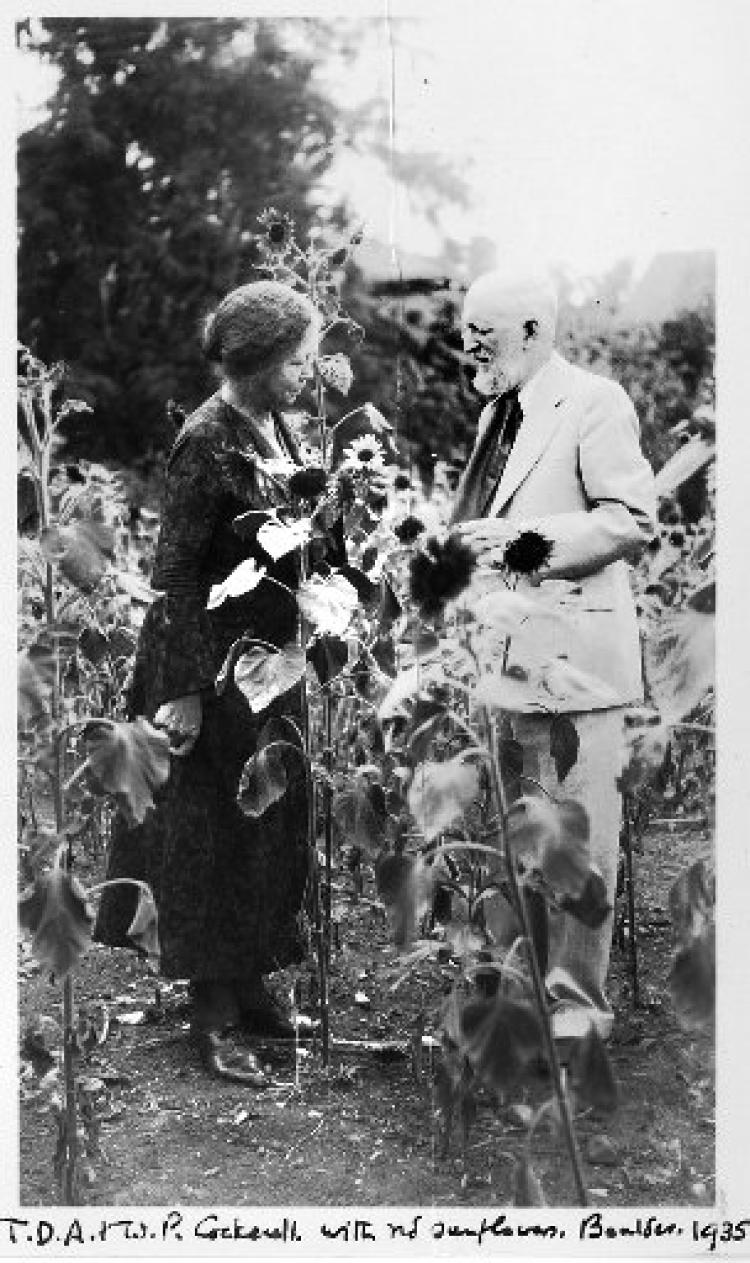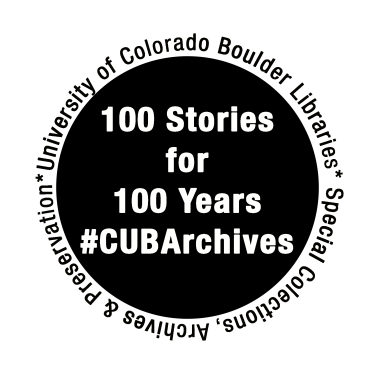 Theodore Dru Alison Cockerell (1866-1948), professor of zoology at the University of Colorado from 1904 to 1934, was an internationally known naturalist who researched and published prolifically in zoology, botany, ecology, and paleontology. He is best known for his work on bees. This digital collection focuses on his field work at the Florissant Fossil Beds in Teller County, Colorado (now a National Monument), one of the world’s richest fossil deposits. Cockerell excavated at the site between 1906 and 1908 and collected thousands of specimens, nearly 2,000 of which are now held by the University of Colorado Boulder Museum of Natural History. Included in the Cockerell Collection are Cockerell’s research notes on species found at Florissant (including new species), letters from his colleagues pertaining to Florissant, lantern slide images of Florissant specimens, and a film showing ground bees nesting, much of which is available to view digitally!
Theodore Dru Alison Cockerell (1866-1948), professor of zoology at the University of Colorado from 1904 to 1934, was an internationally known naturalist who researched and published prolifically in zoology, botany, ecology, and paleontology. He is best known for his work on bees. This digital collection focuses on his field work at the Florissant Fossil Beds in Teller County, Colorado (now a National Monument), one of the world’s richest fossil deposits. Cockerell excavated at the site between 1906 and 1908 and collected thousands of specimens, nearly 2,000 of which are now held by the University of Colorado Boulder Museum of Natural History. Included in the Cockerell Collection are Cockerell’s research notes on species found at Florissant (including new species), letters from his colleagues pertaining to Florissant, lantern slide images of Florissant specimens, and a film showing ground bees nesting, much of which is available to view digitally!

Cockerell's wife, Wilmatte Cockerell, was a high school biology teacher in Boulder, Colorado, who graduated from Stanford in 1898 and is credited with cultivating the red sunflower, Helianthus coloradensis, also known as the Cockerell sunflower. According to a 2012 story in the Daily Camera, the Cockerells received a medal for the red sunflowers at the Panama-Pacific International Exhibition at San Francisco in 1915.
 The University of Colorado Boulder Libraries will celebrate the centennial anniversary of the Archives on June 6, 2018. This is story #25 in our series: 100 Stories for 100 Years from the Archives!
The University of Colorado Boulder Libraries will celebrate the centennial anniversary of the Archives on June 6, 2018. This is story #25 in our series: 100 Stories for 100 Years from the Archives!
